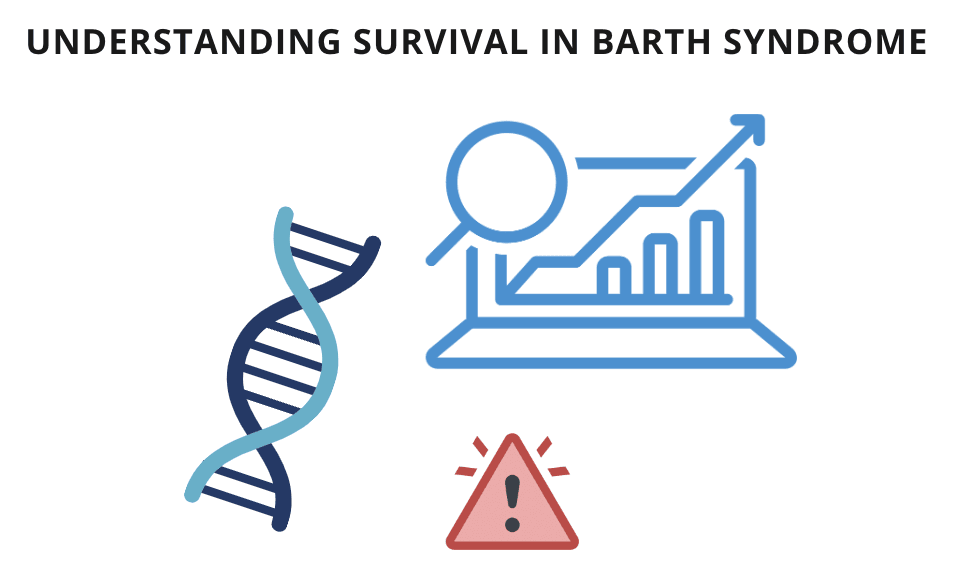
The Barth Syndrome Foundation is partnering with the Biostatistical Collaboration and Consultation Core at New York University to better understand lifespan (scientifically referred to as survival) and factors that may impact survival in Barth syndrome. Advancing our knowledge on survival in Barth syndrome is crucial for improving patient care, increasing public awareness, and for receiving research dollars. Dr. Alex Dahlen and PhD candidate Kexin Fu, MS, who are biostaticians at New York University, will analyze deidentified data collected by the Barth Syndrome Foundation and the Barth Syndrome Registry to accomplish several important research goals on this topic:
1) Estimate survival by ages. We will use the dataset to analyze how the risk of death to Barth Syndrome varies by the affected individual’s age.
(2) Explore risk factors associated with mortality. We will consider a small number of primary risk factors, including diagnosis of neutropenia and receiving a heart transplant. We will test for an association between these risk factors and an increased hazard of death.
(3) Exploratory analysis of the birth cohort. For the small number of affected individuals who initiated contact with the Barth Syndrome Foundation at birth, we will conduct an exploratory analysis to understand how symptoms and risks evolve early in life for Barth syndrome affected individuals.
(4) Characterize how clinical manifestations evolves over time. We will use the registry data in which patients of different ages responded about what symptoms they are currently experiencing to help characterize how symptoms evolve with age.
(5) Understand causes of death. For Barth syndrome affected individuals in the registry who have deceased, we will explore patterns in their causes of death.
Next Steps

Meet the research team

Alex Dahlen, PhD is an Associate Professor of Biostatistics at NYU’s School of Public Health, and the Director of the Biostatistical Collaboration and Consultation Core (BC3). The goals at the BC3 are to (1) be a world-class resource for robust, reliable, and reproducible statistical support in public health research and related fields; and (2) to educate and train the next generation of collaborative statisticians in the practice of team science. In this role, he collaborates with physicians and other researchers on all aspects of research: proposal and grant development; refining research questions; study design and statistical methodology; data housing, cleaning and analysis; and presenting and visualizing the final results. He also devotes time to mentoring junior scientists and statisticians: providing hands-on coding lessons; overseeing analysis; offering study design and methodology tutorials; and lecturing about healthy research practices. He is a statistical generalist with nearly 10 years of experience working in collaborative statistics, and has been the lead statistical/mathematical author on over 40 published manuscripts.

Kexin Fu, MS is a PhD candidate concentrated in Health and Biomedical Data Science (Applied Biostatistics) at George Washington University. She is originally from China where she received a Bachelor of Science degree in Ocean University of China in 2022. After that, she continued her master's study in Biostatistics at New York University School of Global Public Health (GPH). She was a research assistant in the Biostatistical consulting lab and Tobacco Research lab at GPH. Her previous research was mainly focused on developing and applying survival analysis and longitudinal methods in public health fields. She is driven by the aspiration to apply her statistical skills into resolving clinical issues and finding optimal clinical solutions with statistical approaches.



